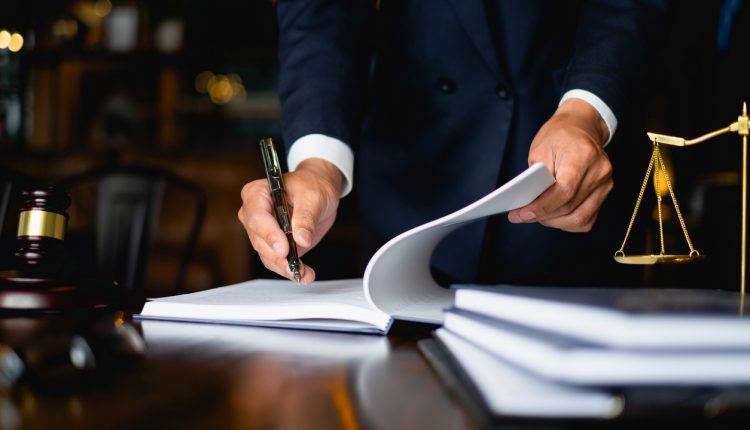What are the responsibilities of a personal injury attorney?
Generally, people consult with and retain a personal injury lawyer when they need legal assistance and representation in personal injury cases such as a construction accident, car accident, slip and falls and trip and falls just to name a few. You must hire an experienced lawyer who is well-versed in the area to help you get the compensation you’re entitled to. But what does a personal injury lawyer and law firm do for you?
The specific responsibilities and actions to be taken by a personal injury lawyer usually depends on the type of case and the specific facts surrounding the accident but there are general steps that are taken in nearly every case. The following are some of the actions that personal injury lawyers perform:
Collecting and Examining evidence – Whether it’s a car accident, truck wreck, construction accident, sidewalk fall or a products liability case, the initial stages of the case deal with obtaining the necessary evidence as quickly as possible. Whether that involves hiring an investigator to obtain statements from witnesses and/or take pictures of the condition that caused the injury, obtaining police reports, retrieving surveillance footage and collecting medical records, the initial stages of a case are often the most crucial when it comes to litigation and it’s important you find a firm that doesn’t take shortcuts when it comes to this. Remember, there is NO FEE so these costs initially are paid out by the firm at the firms own expense and are only ever paid back to the firm if the case is successful.
Dealing with insurance companies – Another important job of a personal injury attorney is to interact with and negotiate with insurance companies. Generally, from the time that an insurance company get’s notice of any claim, they conduct their own investigation and invariably, they will reach out to Plaintiff’s counsel and discuss the claim/case. Once you have retained an attorney, an insurance company or law firm representing the insurance company is prohibited from contacting you and all communication goes through your personal injury lawyer. It is incumbent on your attorney then to represent your interests when dealing with the insurance company.
Prepare and File pleadings – In order to bring a lawsuit, your lawyer must first prepare and then file a complaint with the applicable court where your case is venued. From the time that an answer is received on behalf of the Defendant, it is then said that “issue has been joined” in the matter and the case is then placed on the Court’s docket/calendar. Throughout the process, there are a number of different pleadings and documents that your attorney must file and serve on the Defendant(s) and even upon the Court. Your attorney will need to contact you and confirm certain information that may be requested in some of the pleadings. All of these pleadings will be created and finalized by your attorney on your behalf.
Represent Client at Deposition – When the time comes in your lawsuit for you to appear for a deposition, your attorney will prepare you for the deposition and then attend and represent you at the deposition. What is a deposition? A deposition is defined as “the process of giving sworn evidence” and generally a deposition occurs before you ever appear for a trial. The purpose of a deposition is to have the Plaintiff and Defendant appear, generally in a more relaxed and less formal setting than a courthouse, usually at a reporting office, and provide sworn evidence under oath about the facts surrounding the specific case that they are involved in. One of the rationale’s behind a deposition is to narrow down the issues of the case prior to a possible trial and in doing so, provide the parties to the lawsuit with a clearer picture of the evidence of the case. Depositions are crucial to each case and your attorney’s job is to adequately prepare you for the deposition and to attend and represent you at the deposition.
Represent a client at trial – If your case doesn’t settle during litigation, either at a mediation or simply as a result of negotiations between your attorney and the Defendant(s) attorney’s, the last option is to try your case before a jury. You want an attorney who is comfortable in that setting and isn’t scared of having to put forward his case in front of a jury. Your attorney should always prepare your case as if it were going to trial because it’s only when a Defendant or Insurance Company knows that you are willing and able to try the case do they attempt to resolve it. So what do you take away from this? Hire an attorney you know is ready, willing and able to try your case before a jury. Remember a jury is a jury of your peers, from all walks of life and generally if not always, a jury is made up of people who are not lawyers so you want an attorney who you know can relate to and convey the message of your case to the jury.


